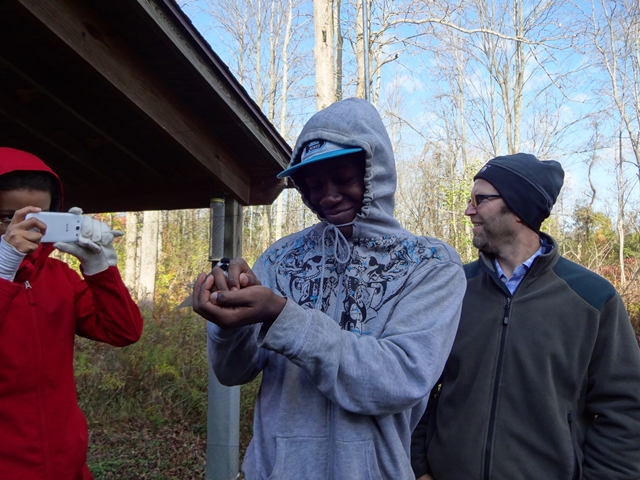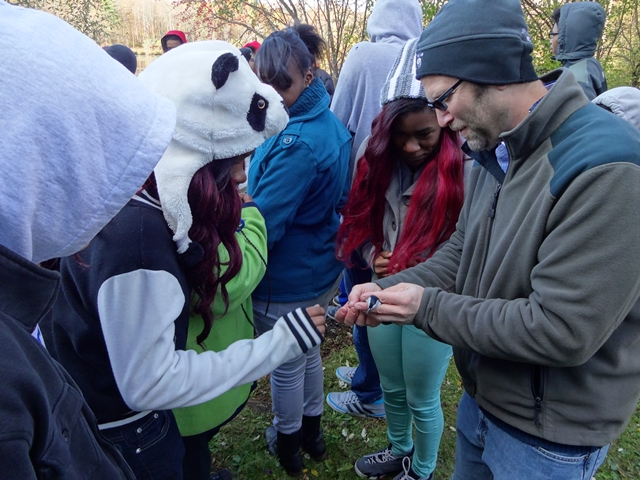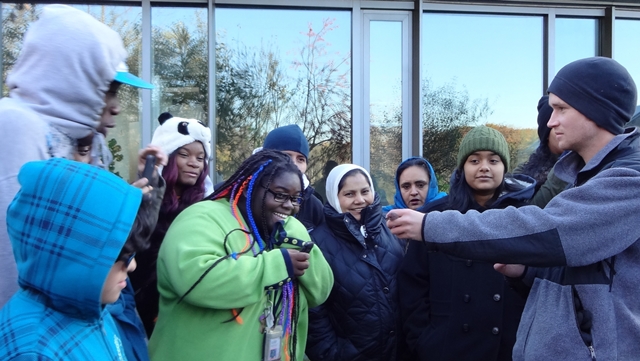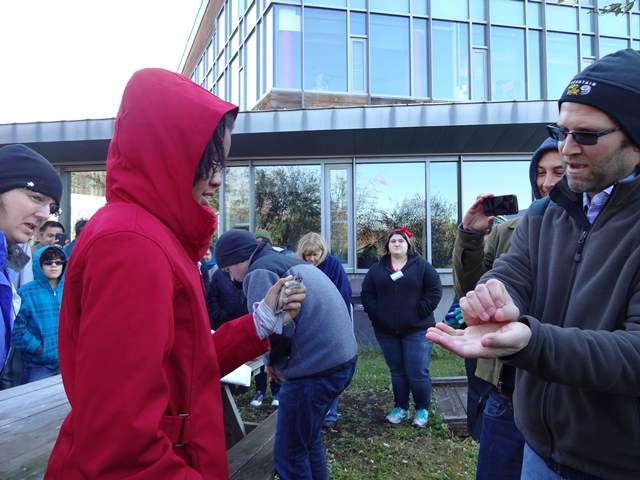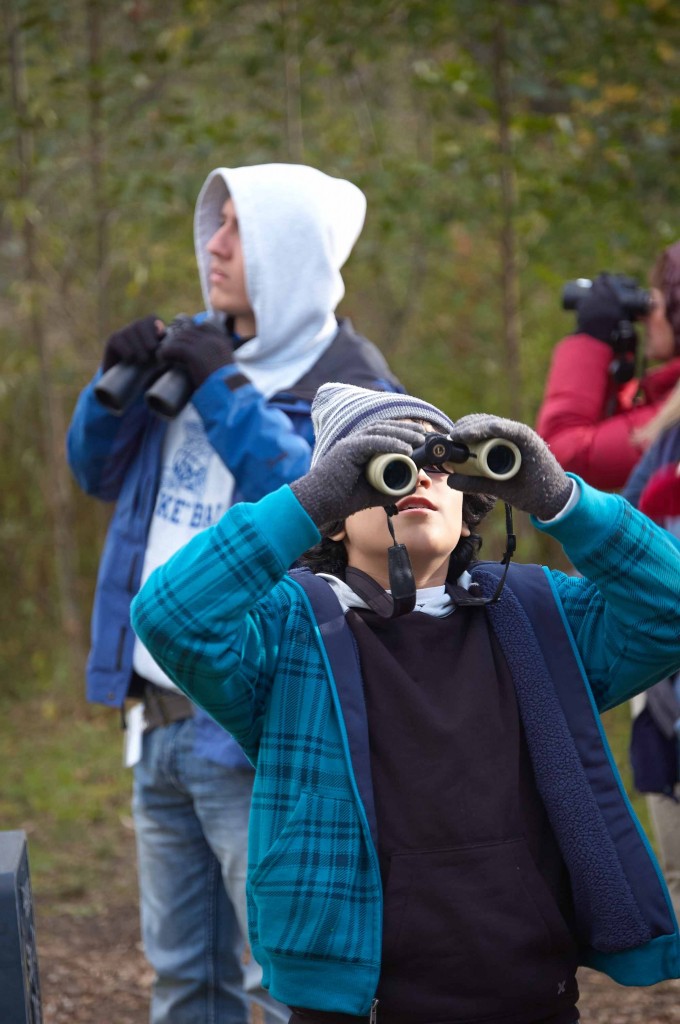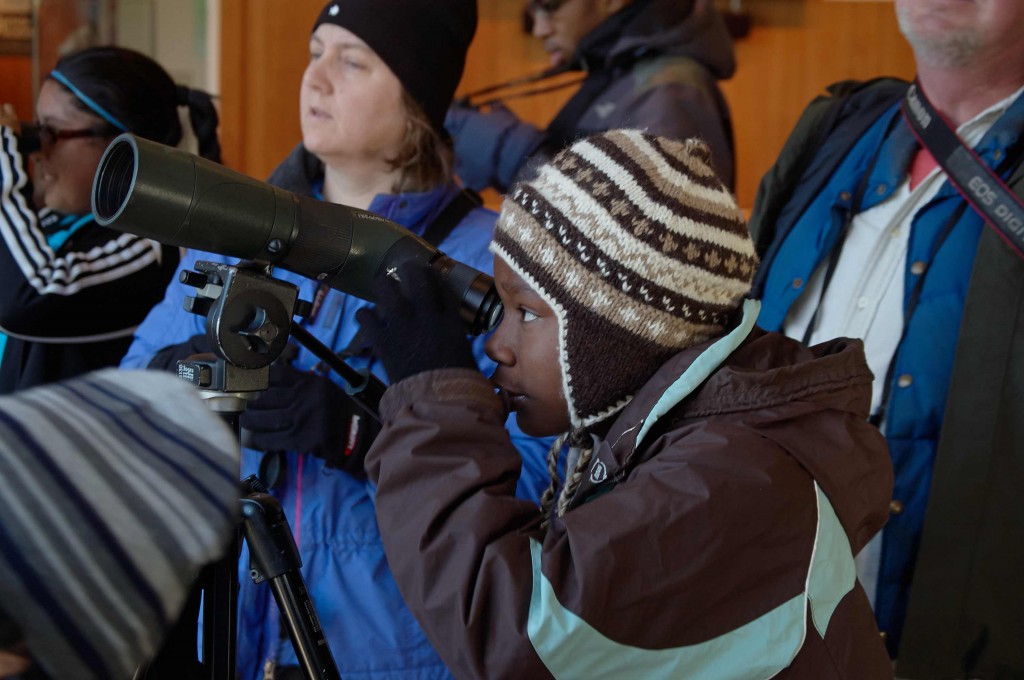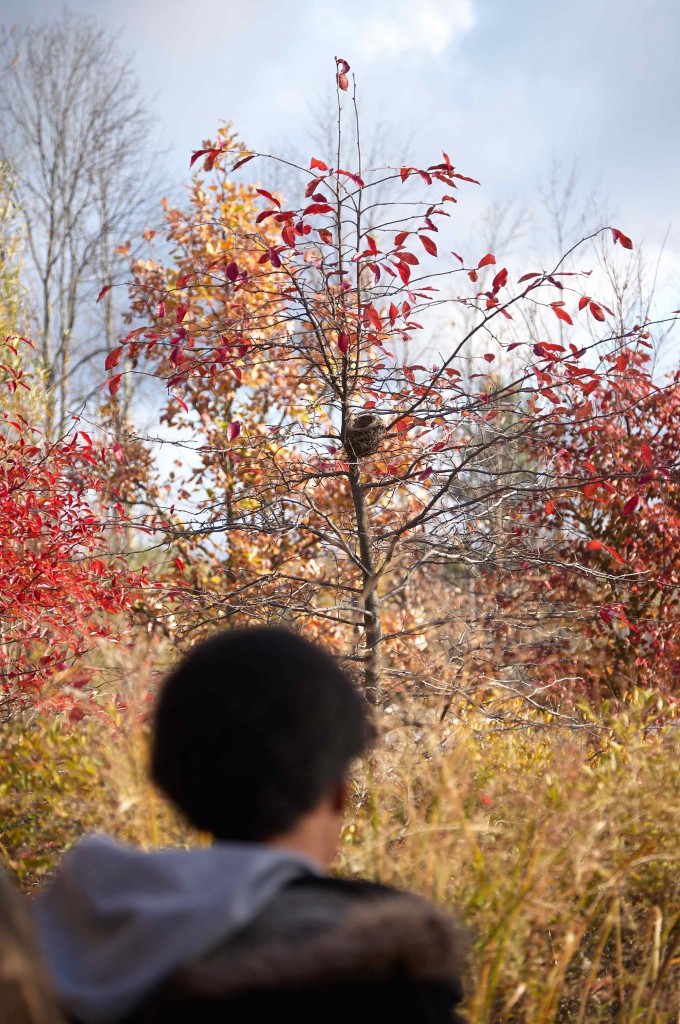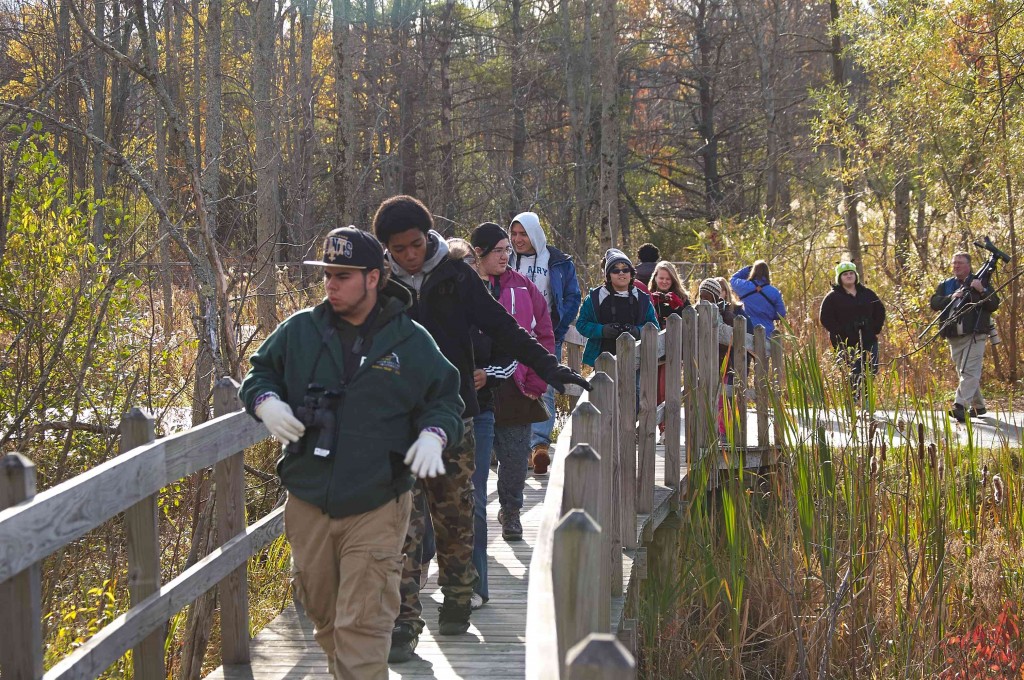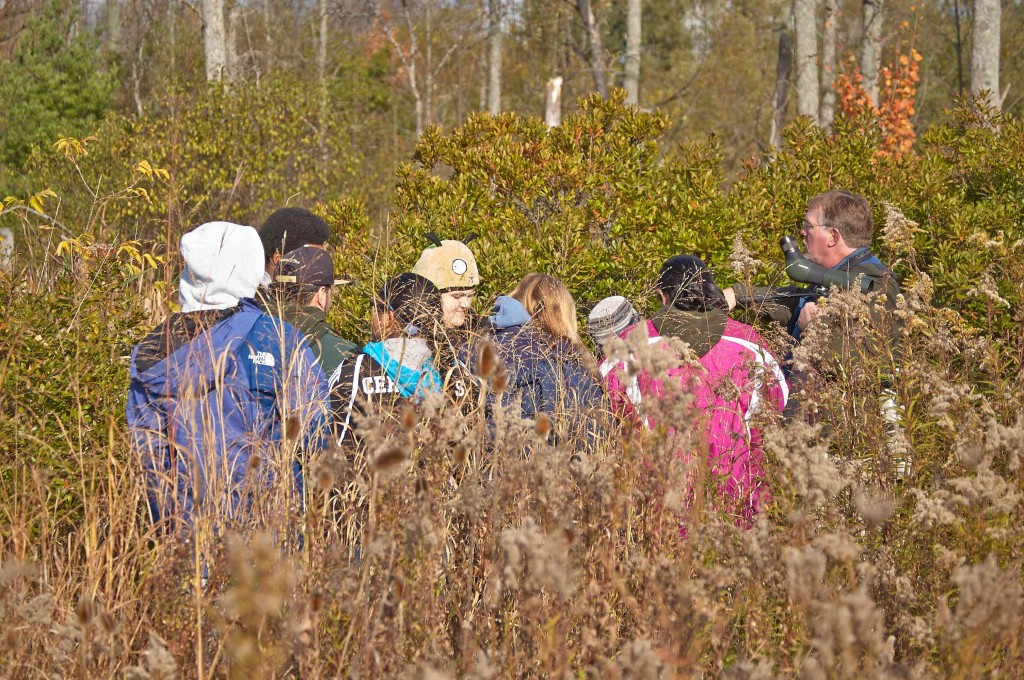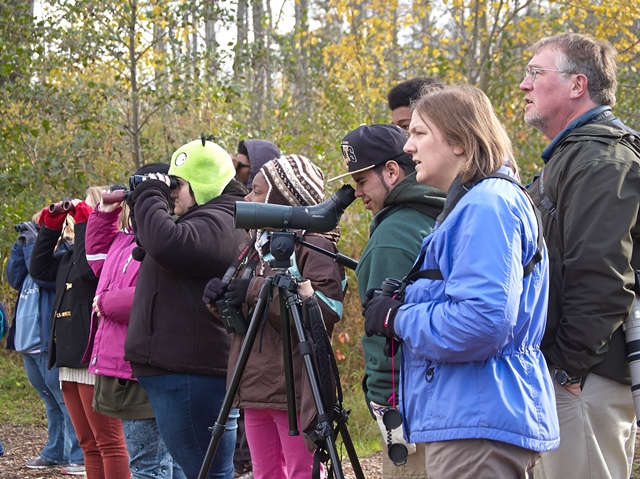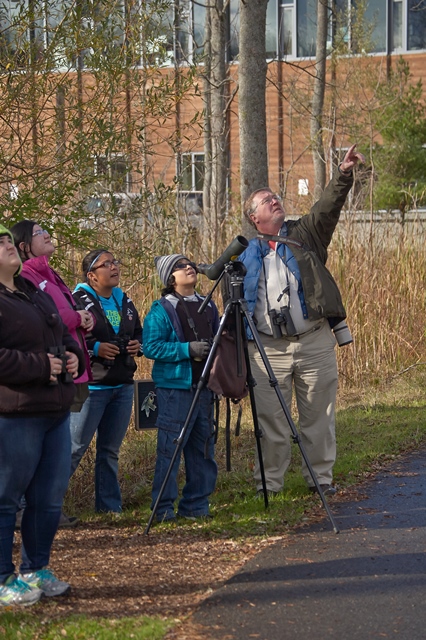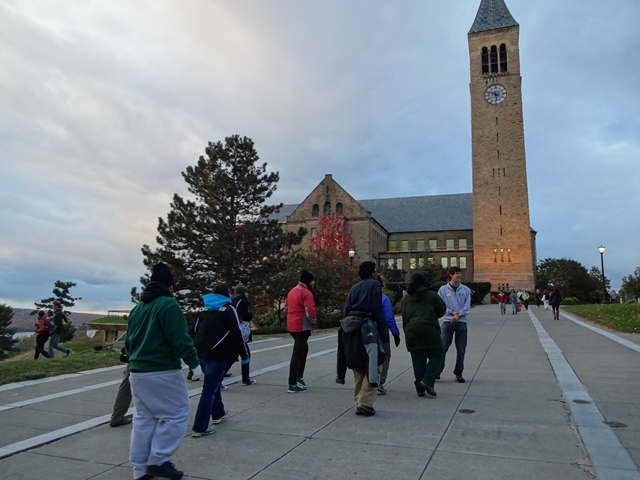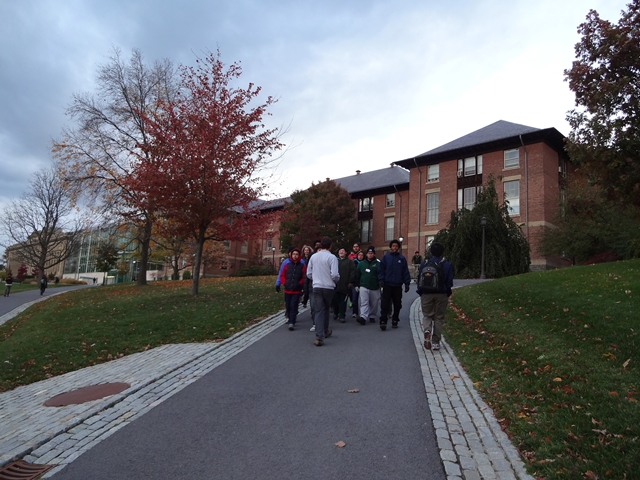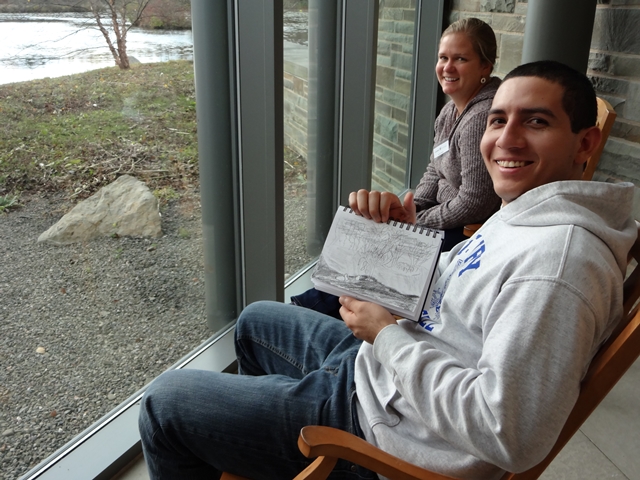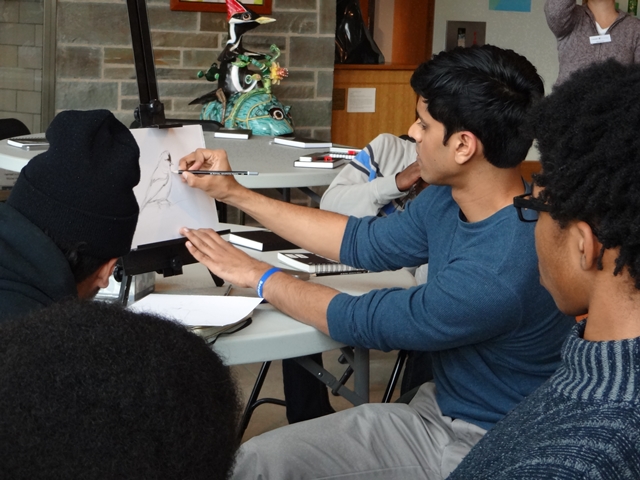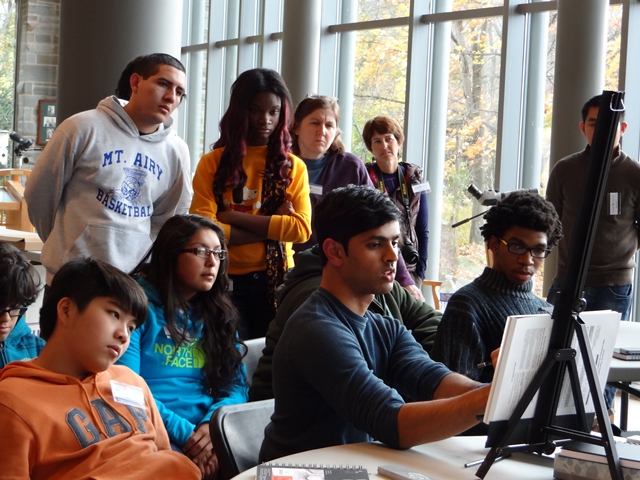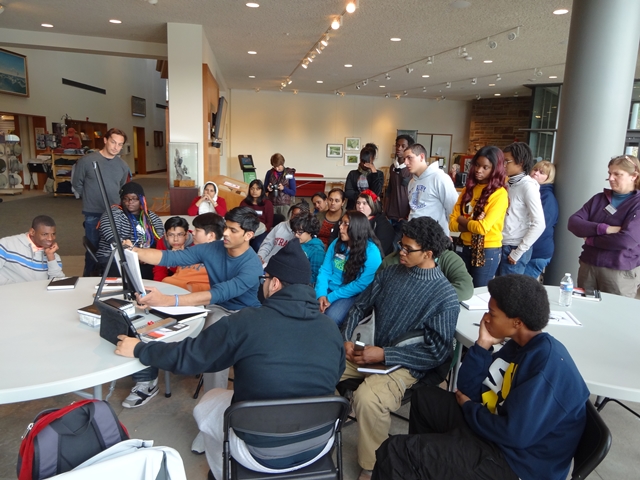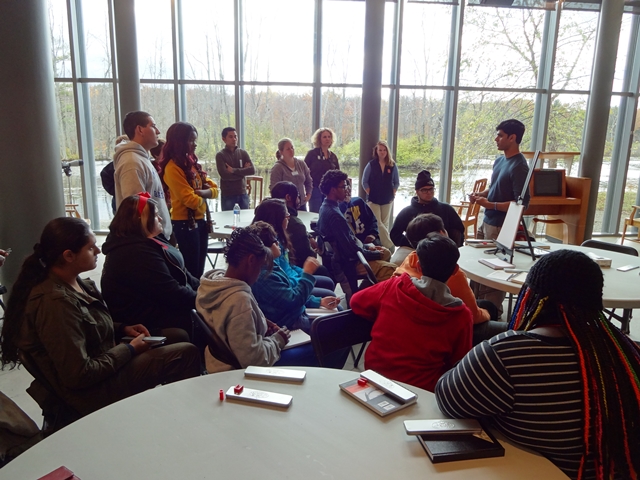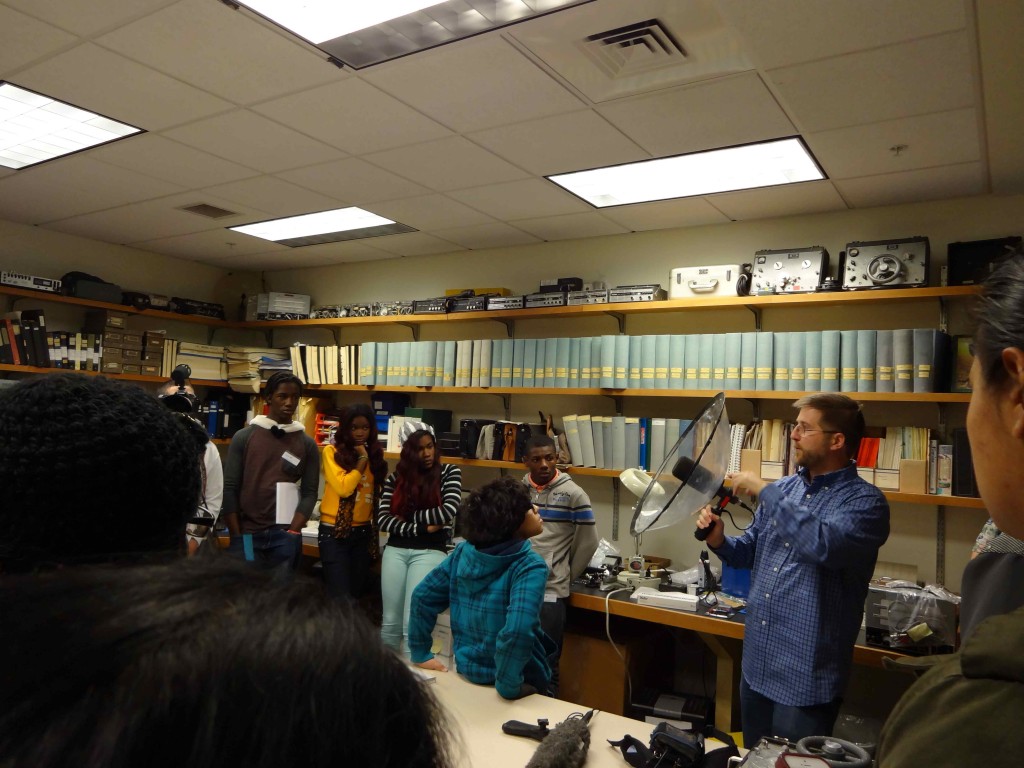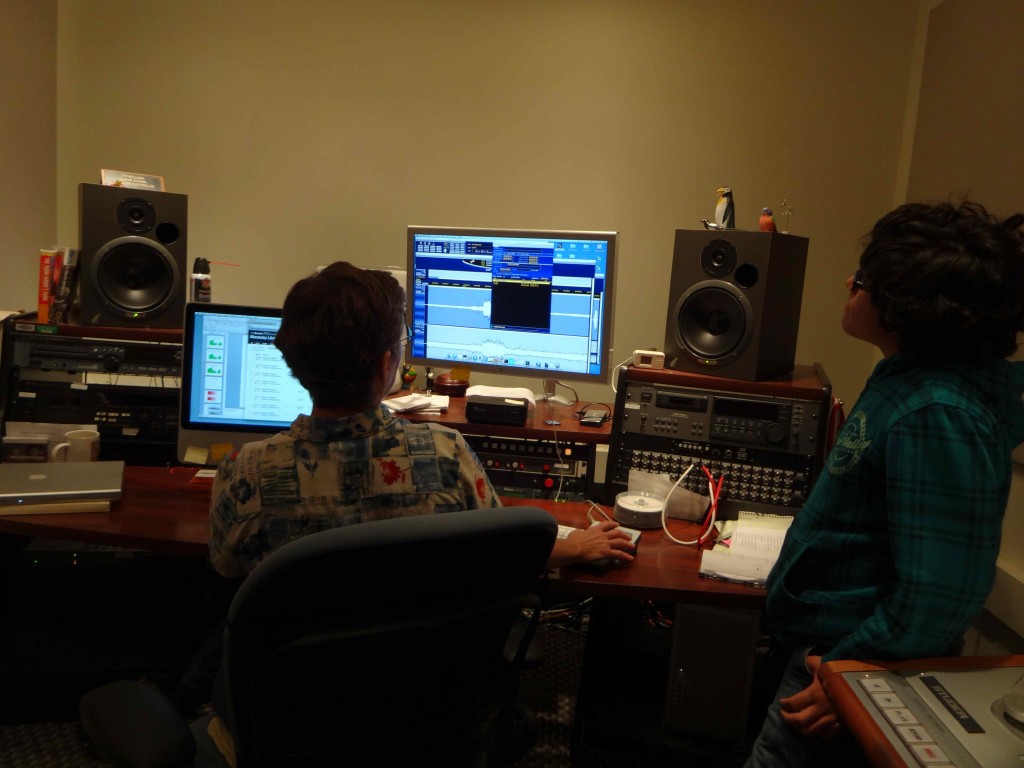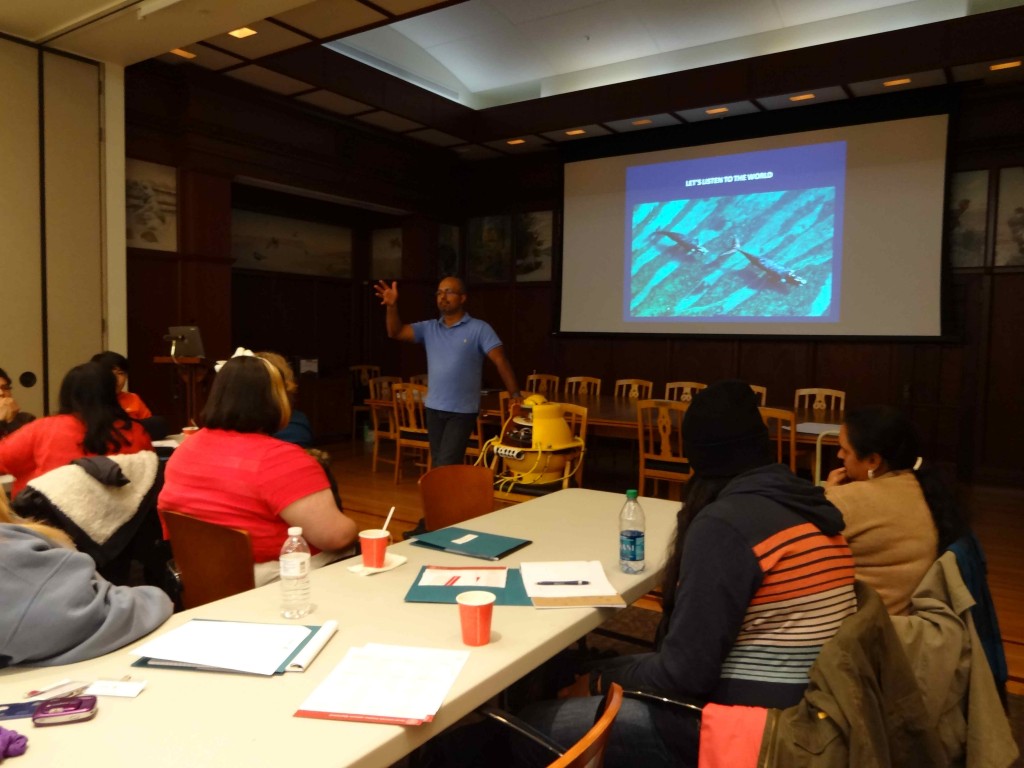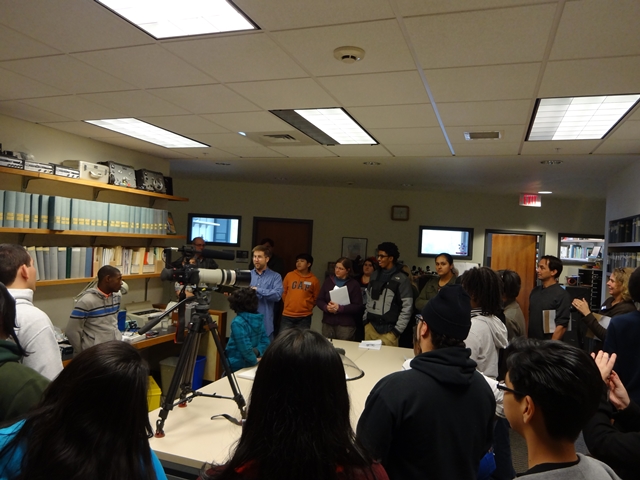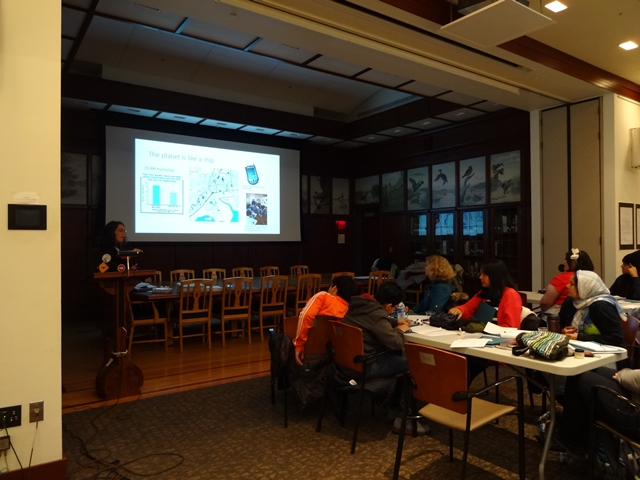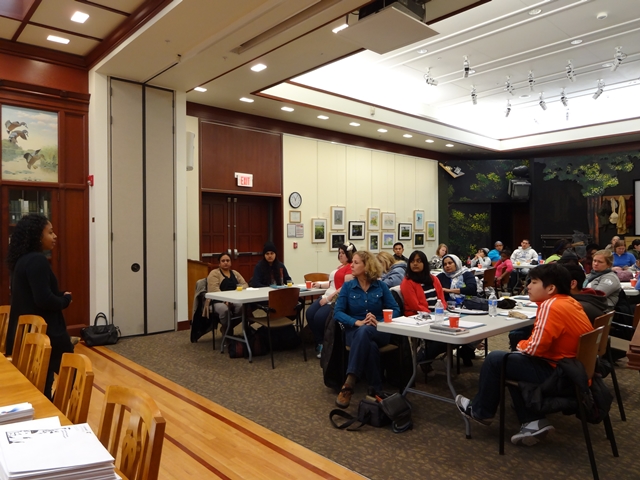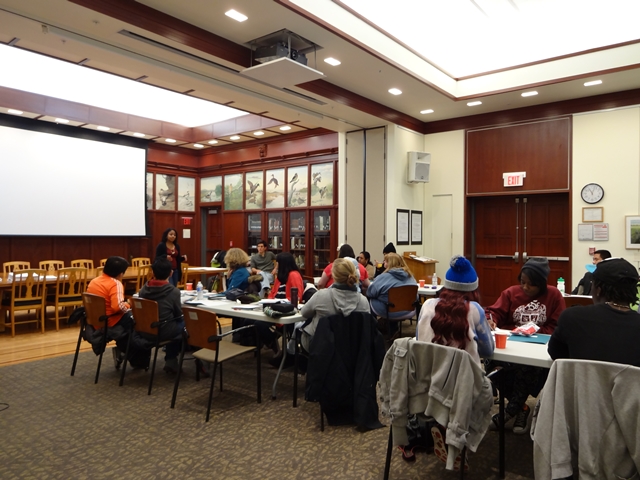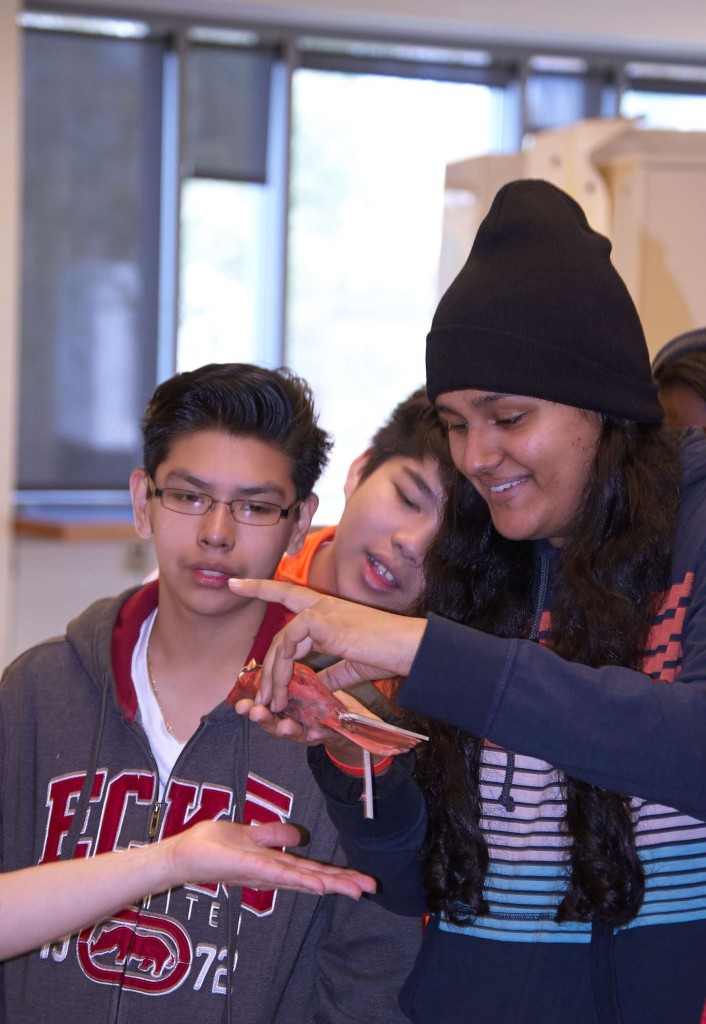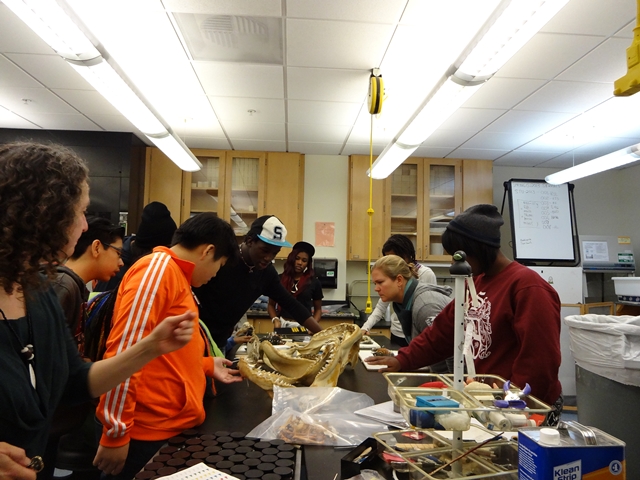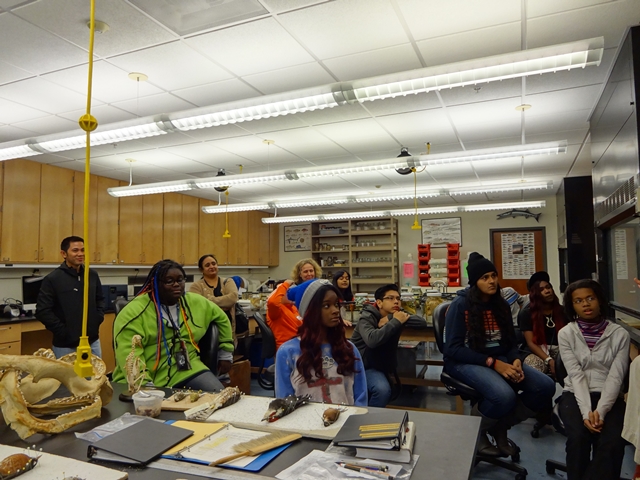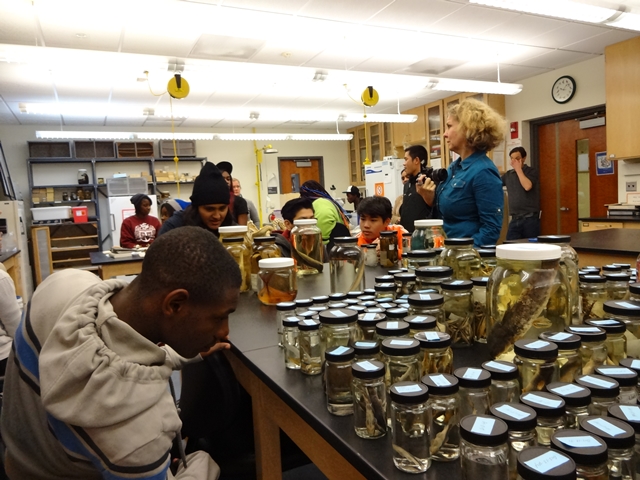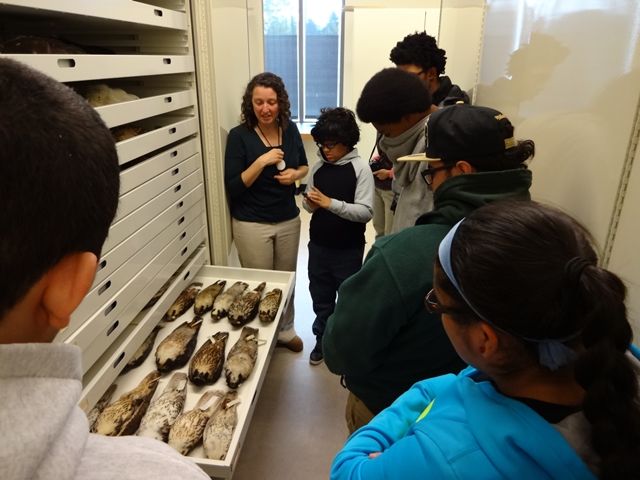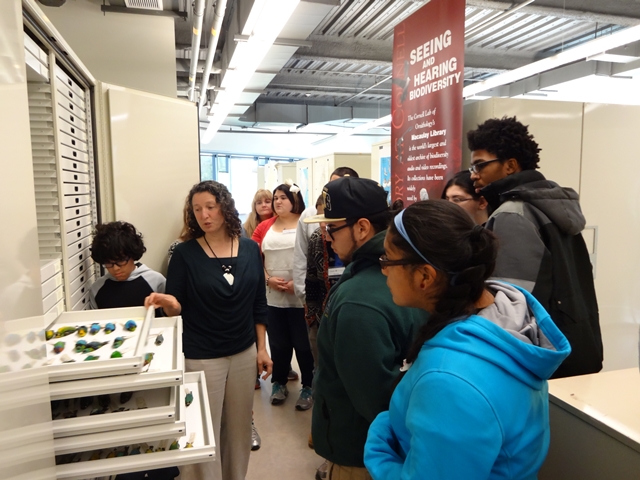
Thanks to funding from the Kaytee Avian Foundation and CALS Funding, on October 24th and 25th we had a fantastic time hosting twenty-two youth (and their nine chaperones) from across the northeastern United States for our Careers and Conservation Workshop here at Sapsucker Woods. Youth had been encouraged to apply and educators could also nominate their students for a spot in the workshop, and everyone was excited to participate in a diverse and interactive series of events and presentations throughout the Cornell Lab of Ornithology.
Participants met David Bonter (Assistant Director of Citizen Science) and his two undergraduate students Evan Barrientos and Johnathan Hruska outside the Lab at a group of feeders that had a mist-net set up between them so that everyone could see the process of bird-banding from start to finish in Bonter’s presentation, “What is Bird-banding and Why Does It Matter?” One of the chaperones wrote to us that “I loved watching the students release the birds after banding, and walking in the woods. These are experiences that the students have never had the opportunity to have.” In the slideshow below by Marta del Campo you can see how engaged the students were in seeing and experiencing a bird in the hand:
Some of the other presentations by Lab faculty included Amanda Rodewald (Director of Conservation Science) on “Making a Difference Through Conservation Science,” Mya Thompson (eLearning Specialist) on “Ever Heard of Dino Fuzz? All About Feathers,” and Eduardo Iñigo Elias (Coordinator of the Neotropical Initiative) on “Conservation in the Neotropics and the Significance of Local Community Engagement.” On one of the evenings participants went on a night walk through the Sapsucker Woods Sanctuary trails with Karen and Marta (CUBs Coordinators). Walking through the woods in near-darkness and keeping completely silent for most of the way, youth were able to experience the sound and feel of a beautiful forest in a way many people never do. Two participants were especially struck by the activity: “My favorite part of the entire workshop was taking a walk through the woods because it gave me an experience I’ve never had before and forced me to get over my fears,” wrote one; another affirmed that, “My favorite part has to be when we did the night walk. I felt my senses adapting during the night and something about it, I just admire.”
Workshop participants spent some more time outdoors and followed Kevin McGowan (Instructor of the Lab’s Home Study Course in Bird Biology) for a walk around the same Sapsucker trails by day to look for birds and learn a bit about their behavior. Despite the chilly morning, the youth made great use of equipment like scopes and binoculars to see local species up close in their habitat. Echoing the previous chaperone’s statement, another schoolteacher wrote that “My students come from the inner city and they have very limited experience being in an open green space. I think that having this experience made them more aware of their environment.” Check out the photos by Diane Tessaglia-Hymes of the bird walk led by Dr. McGowan:
The Bartels Science Illustration Intern, Benlin Alexander, ran a drawing activity called “Deepening Observation Through the Arts” where he showed participants how to use the act of sketching to help notice specific things about birds as well as how to draw birds in the first place. Youth and chaperones alike were captivated as Benlin’s pencil whirred over his sketchbook and left behind a magnificent American Goldfinch drawing! Then the students tried their own hand at some artwork and had some equally impressive results. In the images below by Marta del Campo, you can see this art activity in addition to a couple shots of the participants taking a tour of Cornell, where they learned about the admissions process from Talyse LaDora Hampton (Assistant Director of Admissions/Multicultural Recruitment) and then got to experience some Cornell Dining–yum!
Participants learned about cutting-edge technological research and data collection methods from Macaulay Library audio archivist Martha Fischer and assistant curator Matthew Medler, as well as from Ashik Rahaman, a research analyst at the Bioacoustics Research Program. Several participants were particularly intrigued by the unfamiliar equipment used to record bird sounds; one later wrote that, “My favorite part of the workshop was the sound equipment. I love music and sound in general so it was very exciting.”
Kevin Ripka (Interactive Web Designer) gave an interactive talk on the power of visualization in understanding and communicating data, which tied in with research associate Caren Cooper’s presentation “Citizen Science: Connecting Communities to the Sciences and Conservation.” To provide a local context for the Lab’s relationship with Cornell University, current students Maritza Medina (sophomore, School of Industrial Labor Relations) and Seth Inman (senior, College of Arts & Sciences) spoke about their experiences as undergraduates and daily life at Cornell. Photos by Marta del Campo:
Participants toured the Cornell Museum of Vertebrates, always a crowd favorite, with Kim Bostwick and were able to see the dozens of specimens of not only birds, but also fish, reptiles, and amphibians — with maybe a couple mammals thrown in. Youth and their chaperones became familiar with some of the preservation techniques used to keep specimens in good conditions as educational resources and saw the effects that years of storage can have on different types of feathers and their coloration. The specimens also provide insight as to evolutionary biology and the relative anatomy of different species. One participant declared this part of the workshop a personal favorite, writing that “I liked the dead things in jars”; another wrote that “I’ve been inspired to apply to Cornell and do actual research work.” Here are some photos of Kim and participants by Marta (apart from the first photo, which is by Diane Tessaglia-Hymes):
Overall, we felt this year’s Careers and Conservation Workshop was a great success! Faculty and staff were happy to share their thoughts with a young captive audience, chaperones were thrilled to have their students experience things they’d never had the opportunity to explore before, and the workshop participants themselves were the main beneficiaries of the vast and diverse array of knowledge related to careers in science and conservation that the Cornell Lab of Ornithology has to offer! We look forward to continuing this type of project in the coming years and hope you or someone you know can join us.
